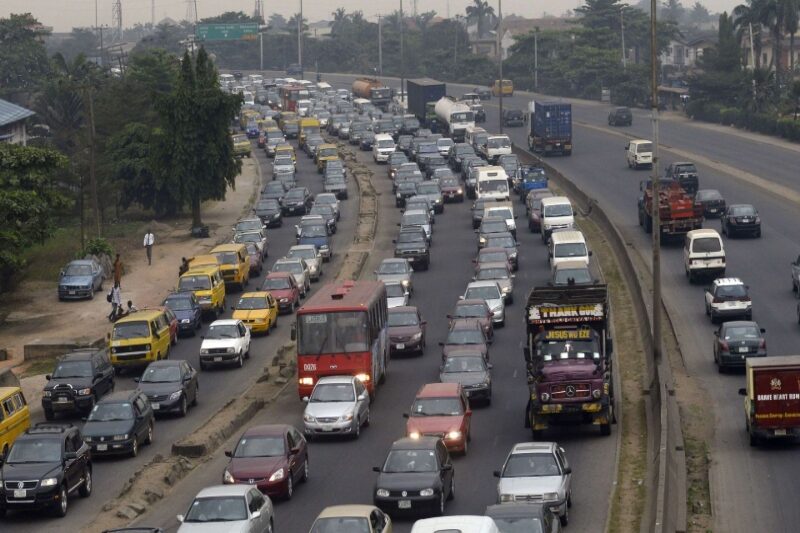Traffic came to a standstill on Friday night when at least 100 surrendered penitent insurgents blocked a highway after breaking out of a rehabilitation camp in Maiduguri to protest against their poor living conditions.
They said they were starving and accused the Borno State government of neglect and not fulfilling its promises.
The protesters blocked the Bulumkutu-Maiduguri highway causing a major gridlock and forcing scared motorists to look for other routes to reach their destinations.
They said they were protesting because the authorities at the Hajj rehabilitation camp did not provide adequate food and other social welfare amenities, claiming the government had neglected them and had not kept its promise of paying their ₦30,000 allowance.
Officials said the protest had caused concern, tension and fear among residents. However, security operatives brought the protest under control and returned the surrendered insurgents to the Hajj camp, the largest rehabilitation centre in Borno State.
The former members of the Jamā’at Ahl as-Sunnah lid-Da’way Wa’l-Jihād (JAS) – better known as Boko Haram – are undergoing disarmament, demobilisation, deradicalisation, rehabilitation, reconciliation and reintegration (DDDRRR) processes, also known as the Borno Model, at the camp.
Usman Tar, Borno State’s commissioner of information and internal security, said officials were capturing biometric data from the camp’s inmates when the breakout occurred.
“Due to a bridge in communication, those who were supposed to appear for the data capture at a later date appeared on Friday, August 18, and this led to confusion at a camp where the exercise was being conducted.
“The Borno State government wishes to assure the public that the situation is under control and normalcy has been restored.”
Tar said the incident illustrated “the sensitive task which authorities face in re-inserting former fighters back into communities that have suffered from years of attacks and kidnappings during a 13-year Islamist insurgency”.
Tar said that the DDDRRR programme was a comprehensive package that was designed to provide a “root and branch” approach to ending the insurgency.
More than 100,000 JAS and Islamic State West Africa Province (ISWAP) repentant insurgents – including fighters, farmers, women and children – had surrendered in Borno State, he said.
Of these, 50% were women and children, 42% were captive farmers and 8% were conscripted fighters and commanders.
Tar said the government had reintegrated 6,900 minor and low-risk penitent insurgents into their communities.
Grema Kyari, a security analyst, told RNI that thousands of active insurgents had surrendered and denounced their former ways by undergoing a series of deradicalisation and rehabilitation processes at various facilities, including the Hajj camp.
The aim was to reintegrate repentant insurgents into society to continue their lives as a responsible Nigerians.
Kyari said that although the government had assured penitent insurgents that they would be reintegrated into society once they were rehabilitated, inmates were angry about the lack of adequate food and poor living conditions, accusing the authorities of negligence and poor handling.
Kyari said that many of the repentant insurgents who had surrendered had returned and rejoined active insurgents because of their poor living conditions in the rehabilitation camps, claiming they were starved and there were inadequate social services in some facilities.
He said it was imperative for both the federal and Borno State governments to fulfil their promises by paying the allowances they had promised to the repentant insurgents and providing adequate social amenities, such as food, water, shelters and healthcare services.
“These repentant insurgents are mostly young people and they could easily be tempted to return to their former ways. This could result in serious setbacks to counterinsurgency operations.”
Kyari said it could disrupt the DDDRRR processes and Operation Safe Corridor which encouraged active JAS and ISWAP fighters in the bush to lay down their arms and surrender.
Meantime, a spokesman for the Multinational Joint Task Force (MNJTF) in the Lake Chad region, released a statement on Saturday, August 19, claiming there had been a “mass surrender of insurgents” as a result of “intensified kinetic and non-kinetic operations” by the task force.
Lieutenant-Colonel Abubakar Abdullahi said that on August 14 and 15 “four key Boko Haram commanders, 13 main fighters and a total of 45 family members laid down their arms and surrendered to troops of Sector 3 MNJTF in Cross Kauwa and Baga in the Kukawa Local Government Area”.
He said they had also surrendered rifles, hand grenades and assorted calibre ammunition.
Abdullahi said the task force was continuing to encourage “the remnants of the insurgents to embrace peace and surrender before it’s too late”, adding that surrender provided the safest route towards peace and rehabilitation.
SHETTIMA LAWAN MONGUNO









